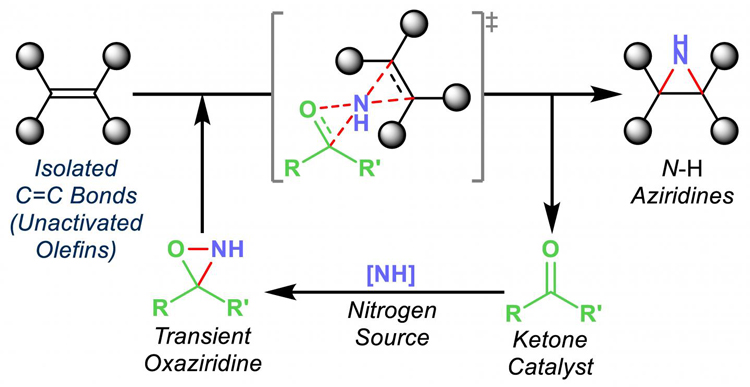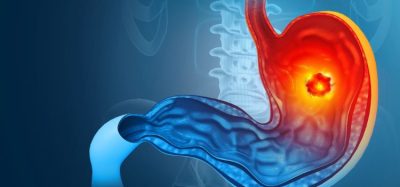Technique to synthesise aziridines developed by researchers
Posted: 2 March 2020 | Victoria Rees (European Pharmaceutical Review) | No comments yet
Eliminating expensive catalysts, researchers have shown it is possible to transfer nitrogen atoms to unactivated olefins for the production of aziridines.


According to researchers, a new technique could allow pharmaceutical manufacturers to make valuable chemical precursors in one pot at room temperature. The study, conducted at Rice University, US, demonstrated the possibility of inexpensive organic synthesis to catalyse the transfer of nitrogen atoms to olefins, unsaturated organic compounds also known as alkenes. This new process combines nitrogen and hydrogen atoms in triangular aziridine products that are readily available to react with other agents through the conversion of nitrogen to olefins that have not already been modified or functionalised.
“These unactivated olefins are commodity chemicals, but very difficult to functionalise,” said lead researcher László Kürti. “We are able to do that now with this chemistry under operationally simple and mild conditions.”
Turning them into nitrogen-containing small molecules makes them far more useful, he explained. “You can then convert them to more complex molecules… These N-H aziridines are essential building blocks.”
To develop their process, the researchers first started eliminating expensive catalysts from the process of transferring nitrogen to arylmetals and later taking enol ethers and transferring nitrogen over to make amino ketones, a feedstock for the chemical industry.
This new process combines nitrogen and hydrogen atoms in triangular aziridine products that are readily available”
“The direct amination of enol ethers was a breakthrough because we didn’t need any catalyst,” he said. “The solvent was promoting the actual nitrogen-transfer process. Then we asked if we could replace the currently used precious metal catalysts with a small organic molecule at just a fraction of the cost to make aziridines.”
The new study revealed that this was possible. The researchers estimate that the commercially available organic small molecule catalyst needed for the process is about 4,000 times less expensive than rhodium-based catalysts in common use. This also makes the process more sustainable.
“Everybody thinks catalysis is the answer for our problems and in many cases it’s true,” Kürti said. “In a difficult reaction, a small amount of catalyst will accelerate the process and save time and money. But many people forget the cost of the catalyst and whether it’s sustainable… Unfortunately, it’s become pretty clear that we’re using high-value catalysts that contain precious metals. The world supply is limited and the prices of these metals are at best erratic.”


A Rice University method to produce aziridines, building blocks for drug design, makes the process far less expensive and more environmentally friendly than current methods that use metal catalysts (credit: Kürti Research Group/Rice University).
However, the team say this process has a disadvantage: “It’s slower than the rhodium-catalysed process,” Kürti said. “What we disclose here takes about six hours at room temperature, where the rhodium-catalysed process, depending on the substrate, ranges between 10 minutes and a half hour.
“You definitely give up a little bit there,” he said. “But six hours is tolerable if you’re making big batches. That’s what I hope people will recognise in the long run.”
The team hopes to refine the process to control how the nitrogen attaches to the olefin and then, in turn, control the essential chirality, or handedness, of the product. Until then, the current process could be of great interest to industry, Kürti said.
“Easier access to previously difficult-to-obtain precursors can actually influence the compound structures that chemists will make in the in the lab,” Kürti said. “Simple procedures that are straightforward to use tend to dominate in pharmaceutical drug development.”
The study was published in Nature Catalysis.
Related topics
Drug Manufacturing, Ingredients, Manufacturing, Production, QA/QC, Research & Development (R&D)









